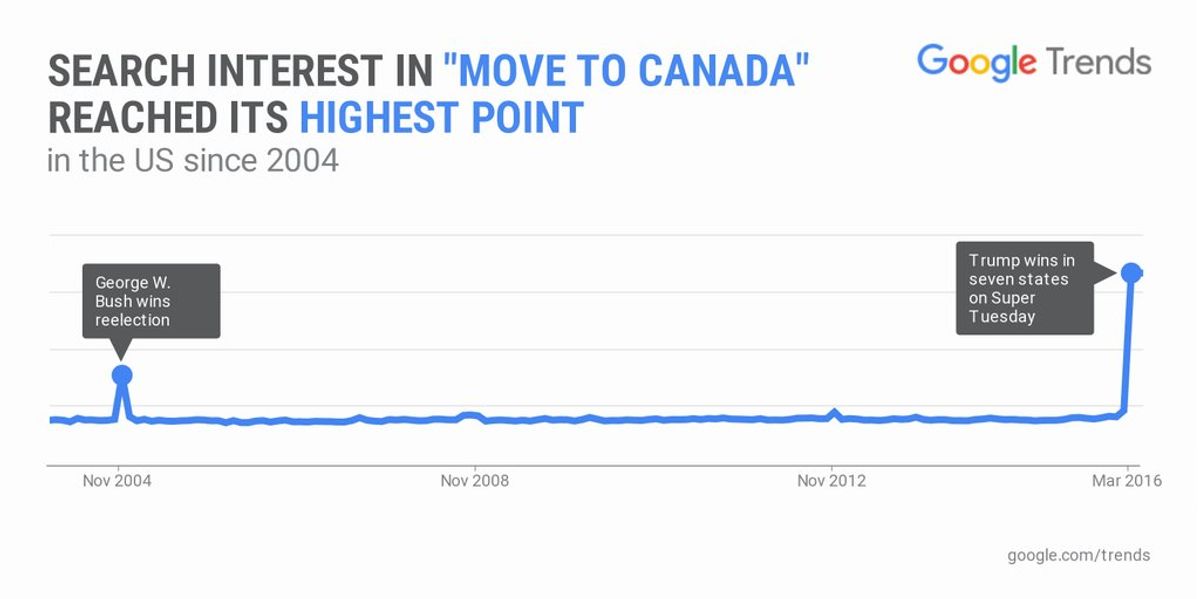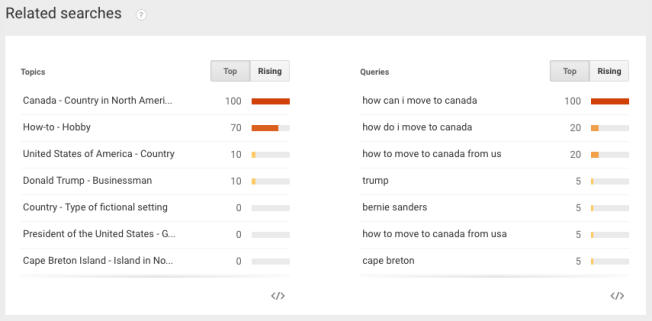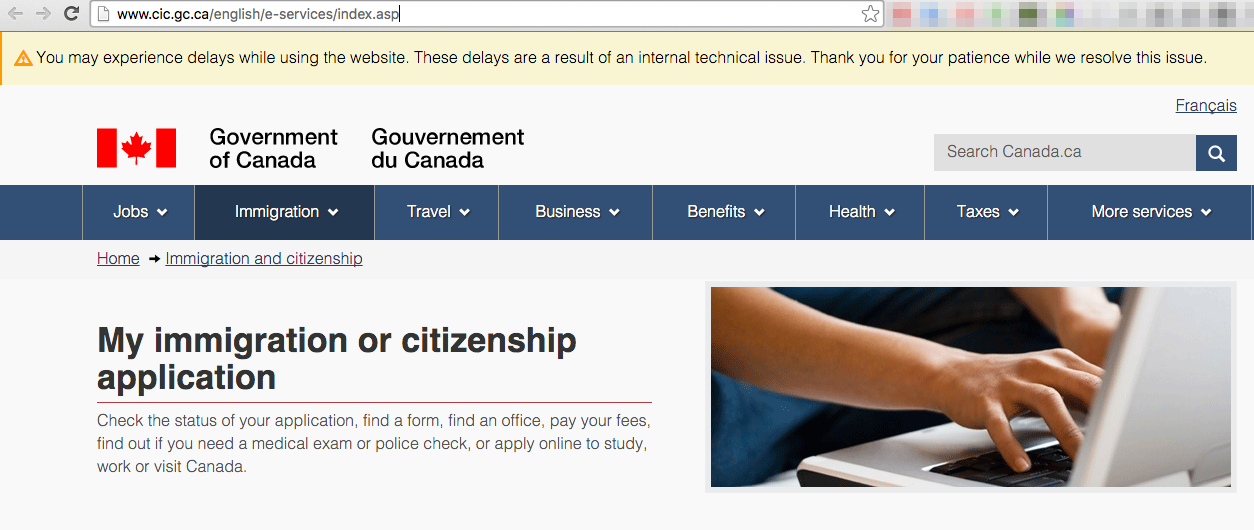Google Trends reported an all-time high of searches relating to moving from the U.S. to Canada on 2 March 2016.
The site "crashed" or experienced massive delays on that date alone.
Whether the site was impacted by those searches; whether Donald Trump was a factor in the spike.
On 1 March 2016, a number of American states held "Super Tuesday" primaries. The next day, Google Trends tweeted that searches originating from the United States about emigrating from the to Canada reached an all-time high:
Searches for "Move to Canada" are higher than at any time in Google history #SuperTuesday pic.twitter.com/0KBJPrHdEO
— GoogleTrends (@GoogleTrends) March 2, 2016
Google offered no explanation for the spike, but on 2 March 2016, the Washington Post published a piece that maintained that the real winner of Super Tuesday was "Canada":
Donald Trump was projected to win in at least seven states. Chris Christie, who endorsed Trump last week, was shown standing behind the Republican presidential front-runner wearing an expression of unmasked horror. And, the government of Canada’s immigration website was experiencing delays. Coincidence? The Internet didn’t think so. By the end of the night, Trump had secured victories in seven states, well ahead of his competitors. But his popularity wasn’t apparent on Facebook and Twitter, where users lamented the billionaire real estate mogul’s rise and contemplated fleeing the country ... Simon Rogers, a data editor at Google, noted that the phrase’s search popularity had increased by 350 percent between 8 p.m. and midnight Eastern. At midnight, the spike reached 1,500 percent. To quote Trump himself, “Just look at the numbers, way up!”
The Washington Post included a tweet of a screenshot of the Canadian immigration web site published late on 1 March 2015:
Canada's immigration website is being overloaded with web traffic after Super Tuesday results. pic.twitter.com/JqxW8ZSUHB — jay newman (@Big_Dread) March 2, 2016
However, it wasn't immediately clear whether Super Tuesday (or any other specific event) spurred the search spike. U.S. News & World Report dug into the data, and discovered that the searches were indeed highest in two states where Trump won primaries on Super Tuesday (Massachusetts and Virginia).
But that outlet uncovered some other related search data that suggested the cause and effect wasn't necessarily cut and dried. For example, Democratic presidential candidate Bernie Sanders received equal attention in related searches, but no one seemed to be blaming the spike on him:
Vox pointed out that while the spike following the re-election of George W. Bush appeared smaller, that was also a period before smartphones and widespread use of social media. TIME reported that immigration did increase following that election, but no one is sure specifically what caused that uptick. (Confounding factors like a weak economy or increased internet relationships could have also been factors.)
Shortly after the story made its rounds, psychology professor Adam Alter speculated that few truly would leave the United States:
In truth, though, few of Trump’s detractors are likely to leave the country because of November’s results. And had Mitt Romney won in 2012, as I wrote then for the Atlantic, few diehard supporters of President Obama’s would have done so, either. This pattern has a history: Twelve years ago, as George W. Bush took a commanding lead over John F. Kerry in the polls, Canadian immigration applications tripled. Visits to the immigration department’s website skyrocketed from an average of 20,000 per day to 115,000 the day after Bush won the election. A small crop of diehard liberals followed through, but U.S-Canadian immigration was ultimately unchanged in the year following the election. Two years later, conservative radio host Rush Limbaugh promised to move to Costa Rica if the Affordable Care Act passed. It did, but Limbaugh still lives in Palm Beach, Fla.
Why do so many disgruntled voters threaten to leave the country, only to see so few actually follow through? Because people overestimate how much pain they’ll feel when they experience a dreaded outcome.
A key aspect of the rumor hinged on the number of Americans searching for ways to get out of the country on Canada's official immigration site, but when we visited that link on 9 March 2016, a nearly identical error message appeared:
The exact impetus for the rise in searches for the phrase "move to Canada" remains unclear. While Americans on both sides of the aisle threaten to leave the country for political reasons during every election, studies suggest that only a handful follow through with such plans. Also, reported error messages on the Canadian immigration website on 1 March 2016 were still in place on 9 March 2016, more than a week after the spike in searches abated.



